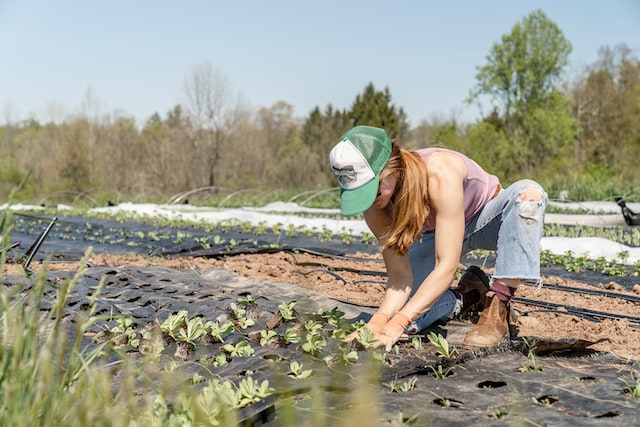Environment
Typical air contaminants include particulate matter, carbon monoxide, nitrogen dioxide, ozone, and sulfur dioxide. These contaminants have the potential to harm not only Mother Nature but also our animal pals who have fur.
While nitrogen is one of the most prevalent elements in our atmosphere, too much of it from sources like fossil fuels, wastewater, agricultural practices, herbicides and pesticides, soaps, and disinfectants, to name a few, can affect our ability to breathe, hinder plant growth, and spur the growth of algae at an alarming rate, which reduces the amount of oxygen available for fish to survive.
Here are a few things you can do to better the environment.
1. Avoid Peat-based Composts
Huge volumes of rainwater may be stored in a healthy peatland bog, which helps lower the risk of floods. Due to the enormous amounts of carbon they can store, bogs are also incredibly useful in the fight against climate change. They can store a lot more carbon than trees. To rebuild this priceless habitat, you can help by avoiding peat-based compost.
2. Nix the Straws
Most of the 500 million plastic straws used in America each day wind up in the ocean, contaminating the water and harming marine life. By 2050, more plastic will be in the ocean than fish, according to Strawless Ocean, a group fighting using single-use plastic straws. Using straws is one of the top ten environmental hazards to fish, coral reefs, and sea turtles. For Earth Day, the entire squad gave them up. Join the cause by switching to alternatives like glass, bamboo, or stainless steel straws and using the hashtag #stopsucking.
3. Do not Use Chemicals in your Garden or Other Outside Area
Reduce the number of pesticides and herbicides you use. These substances eliminate the natural enemies of the pests in your garden, including ladybirds, beetles, spiders, and moths. Pesticides are often used, and poisons may infiltrate rivers and streams through water runoff.
4. Reusable Grocery Bags
Over a hundred billion plastic bags are used in America each year. Every year, the death toll from plastic pollution is around 100,000 marine mammals and 1 million seabirds. Certain states, including California and Hawaii, have outlawed plastic bags. We don’t have to select paper every time we visit the grocery store. Bring your reusable bags instead. If you’re like me and forget to pull them out of your trunk when you head into the store, buy the ones that close tightly to keep them inside your purse.
5. Reduce Energy
Use CFL light bulbs, which consume 70% less energy than conventional bulbs. Increasing your thermostat by two degrees in the summer and decreasing it in the winter can reduce your carbon footprint by more than 2,000 pounds annually. Use a power strip to turn off your electronics or unplug them when not in use.
Biking to work or supper can be a wonderful way to reduce your carbon footprint and get some exercise if you live in an urban area. Most cities now offer relatively affordable bike-sharing programs.
6. Decrease Meat & Dairy Consumption
Our ecology is negatively impacted by excessive meat and dairy intake. In addition, unsustainable dairy and cattle production results in the degradation of forests and wetlands. Numerous species that depend on one another for life in natural ecosystems are being harmed by the deforestation needed to accommodate animals.
7. Use Biodegradable Products
Biodegradable garbage bags are more eco-friendly than regular plastic bags because they don’t produce harmful by-products. They are created by manufacturers using sustainable plant materials, such as maize starch. Under the appropriate circumstances, they degrade into soil nutrients.
Plastics found in traditional trash bags are disposed of in landfills. These bags might take years to degrade, hurting our ecosystem even if they can go unnoticed.
8. Buy Regionally and Organically
When you can support local farmers, lessen your carbon footprint, and protect the environment by purchasing fresh, organic food.
9. Start Your Initiative or Offer your Time to Environmental NGOs
No matter how little the activity, such as joining a neighborhood clean-up club or a large organization, can have a significant impact. You can get involved in many different ways, from planning fundraising activities to offering practical help like beach clean-ups.
10. Obtain Condiments in Glass Jars
Look for condiments and other things in glass, not plastic, containers. These glass jars can be used again to store other liquids and goods.
Conclusion
To make a significant difference, every one of us must commit to holding ourselves accountable. Even a small number of these suggestions can significantly impact our ability to reduce our carbon footprint, improve our health, and protect the environment.


